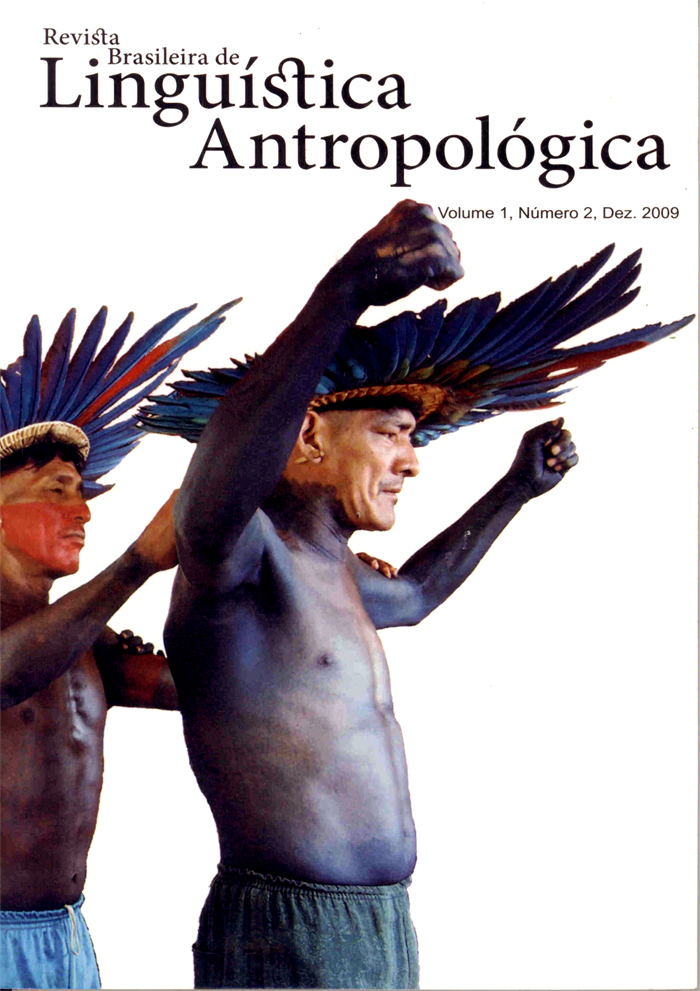Disputa política na sociedade Kamaiurá
DOI:
https://doi.org/10.26512/rbla.v1i2.12366Keywords:
Power relations. social distinctions. political struggle. Upper Xingu. Kamaiurá.Abstract
How are power relations established in a markedly egalitarian society like the Kamaiurá and how to exercise command and coercion? Taking into account this question and considering a modality of political action due to other matrices and stimulated by competition and dispute other than those present in the national society, I put forward a reflexion on the power relations among the Kamaiurá.
References
Agostinho, Pedro. 1974. Kwarìp. Mito e ritual no Alto Xingu. São Paulo: EPU, Ed. da USP.
Balandier, Georges. 1976. Antropológicas. Tradução de Oswaldo Elias Xidieh. São Paulo: Cultrix/Editora da Universidade de São Paulo.
Dennett, Daniel. 2006. Quebrando o encanto. A religião como fenômeno natural. Tradução de Helena Londres. São Paulo: Globo.
Galvão, Eduardo. 1979. Encontro de sociedades: índios e brancos no Brasil. Rio de Janeiro: Paz e Terra.
Galvão, Eduardo. 1996. Diários de Campo de Eduardo Galvão: Tenetehara, Kaioá e Ãndios do Xingu. Organização, Edição e Introdução de Marco Antonio Gonçalves. Rio de Janeiro: Editora UFRJ/Museu do Ãndio ”“ FUNAI.
Godelier, Maurice. 2000. O enigma da dádiva. Tradução de Pedro Miguel Elói Duarte. Lisboa: Edições 70.
Junqueira, Carmen. 2006. Pajés e feiticeiros. In: Roberto G. Baruzzi e Carmen Junqueira (orgs.), Parque Indígena do Xingu. Saúde, Cultura e História. São Paulo: Terra Virgem, p.147-161.
Junqueira, Carmen; Taciana Vaneska Vitti. 2009. O Kuaryp kamaiurá na aldeia de Ipavu, Instituto de Estudos Avançados/Universidade de São Paulo. Estudos Avançados, vol. 23, n. 65, São Paulo: IEA, p.133-148.
Oberg, Kalervo. 1950. The Kamayurá. In Kalervo Oberg, Indian Tribes of Northern Mato Grosso, Brazil. Smithsonian Institution. Institute of Social Anthropology, Publication n. 15, Washington, p.1-68.
Samain, Etienne. 1980. De um caminho para outro. Mitos e aspectos da realidade social nos índios Kamayurá (Alto Xingu). Dissertação de mestrado, Programa de Pós-Graduação em Antropologia Social, Museu Nacional/UFRJ.
Seki, Lucy. 2000. Gramática do Kamaiurá: língua Tupí-Guaraní do Alto Xingu. Campinas: Editora da Unicamp/São Paulo: Imprensa Oficial.
Simmel, Georg. 2006. Questões fundamentais da sociologia: indivíduo e sociedade. Tradução de Pedro Caldas. Rio de Janeiro: Jorge Zahar.
Villas Boas, Cláudio; Orlando Villas Boas. 1984. Xingu: o velho Káia. Porto Alegre: Kuarup.
Villas Boas, Cláudio; Orlando Villas Boas. 1994. A marcha para o oeste. 4a. ed. São Paulo: Globo.
Downloads
Published
Issue
Section
License
Authors who publish in RBLA agree to the following terms:
a) Authors maintain the copyright and grant the journal the right of first publication, and the work is simultaneously licensed under the Creative Commons Attribution License, which allows the sharing of the work with recognition of the authorship of the work and initial publication in this journal.
b) Authors are authorized to assume additional contracts separately, for non-exclusive distribution of the version of the work published in this journal (eg, publish in an institutional repository or as a book chapter), with recognition of authorship and initial publication in this journal.
c) Authors are allowed and encouraged to publish their work online (eg, in institutional repositories or on their personal page) at any point before or during the editorial process, as this can generate productive changes, as well as increase impact and citation of the published work.







